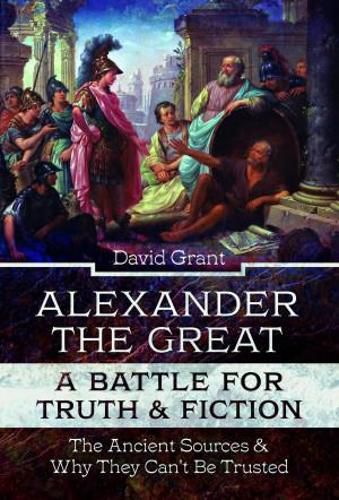Readings Newsletter
Become a Readings Member to make your shopping experience even easier.
Sign in or sign up for free!
You’re not far away from qualifying for FREE standard shipping within Australia
You’ve qualified for FREE standard shipping within Australia
The cart is loading…






Most of what we ‘know’ about Alexander the Great (356-323 BC) comes from the pages of much later historians, writing 300 years or more after these events. But these Roman-era writers drew on the accounts of earlier authors who were contemporary with Alexander, some of whom took part in the momentous events they described. David Grant examines the fragments of these earlier eyewitness testimonies which are preserved as undercurrents in the later works. He traces their influence and monopoly of the ‘truth’ and spotlights their manipulation of events to reveal how the Wars of the Successors shaped the agendas of these writers. It becomes clear that Alexander’s courtiers were no-less ambitious than than their king and wanted to showcase their role in the epic conquest of the Persian Empire to enhance their credibility and legitimacy in their own quests for power. In particular, Grant reveals why reports of the dying king’s last wishes conflict, and he explains why testimony relegated to ‘romance’ may house credible grains of truth. The author also skillfully explains how manuscripts became further corrupted in their journey from the ancient world to the modern day. In summary, this work by a recognised expert on the period highlights why legacy of Alexander is built on very shaky foundations. AUTHOR: David Grant has a masters degree in ancient history. He is responsible for a number of international patents stemming from ideas that set out to challenge the status quo in one way or another, life experience which gave him his academic tenets: always challenge accepted norms, the past is never dead, and believe what you read at your peril. His research sets out to question and contest the ‘standard model’ of the history of the great Macedonian king. He is the author of Unearthing the Family of Alexander the Great and The Last Will and Testament of Alexander the Great. 4 b/w illustrations
$9.00 standard shipping within Australia
FREE standard shipping within Australia for orders over $100.00
Express & International shipping calculated at checkout
Most of what we ‘know’ about Alexander the Great (356-323 BC) comes from the pages of much later historians, writing 300 years or more after these events. But these Roman-era writers drew on the accounts of earlier authors who were contemporary with Alexander, some of whom took part in the momentous events they described. David Grant examines the fragments of these earlier eyewitness testimonies which are preserved as undercurrents in the later works. He traces their influence and monopoly of the ‘truth’ and spotlights their manipulation of events to reveal how the Wars of the Successors shaped the agendas of these writers. It becomes clear that Alexander’s courtiers were no-less ambitious than than their king and wanted to showcase their role in the epic conquest of the Persian Empire to enhance their credibility and legitimacy in their own quests for power. In particular, Grant reveals why reports of the dying king’s last wishes conflict, and he explains why testimony relegated to ‘romance’ may house credible grains of truth. The author also skillfully explains how manuscripts became further corrupted in their journey from the ancient world to the modern day. In summary, this work by a recognised expert on the period highlights why legacy of Alexander is built on very shaky foundations. AUTHOR: David Grant has a masters degree in ancient history. He is responsible for a number of international patents stemming from ideas that set out to challenge the status quo in one way or another, life experience which gave him his academic tenets: always challenge accepted norms, the past is never dead, and believe what you read at your peril. His research sets out to question and contest the ‘standard model’ of the history of the great Macedonian king. He is the author of Unearthing the Family of Alexander the Great and The Last Will and Testament of Alexander the Great. 4 b/w illustrations